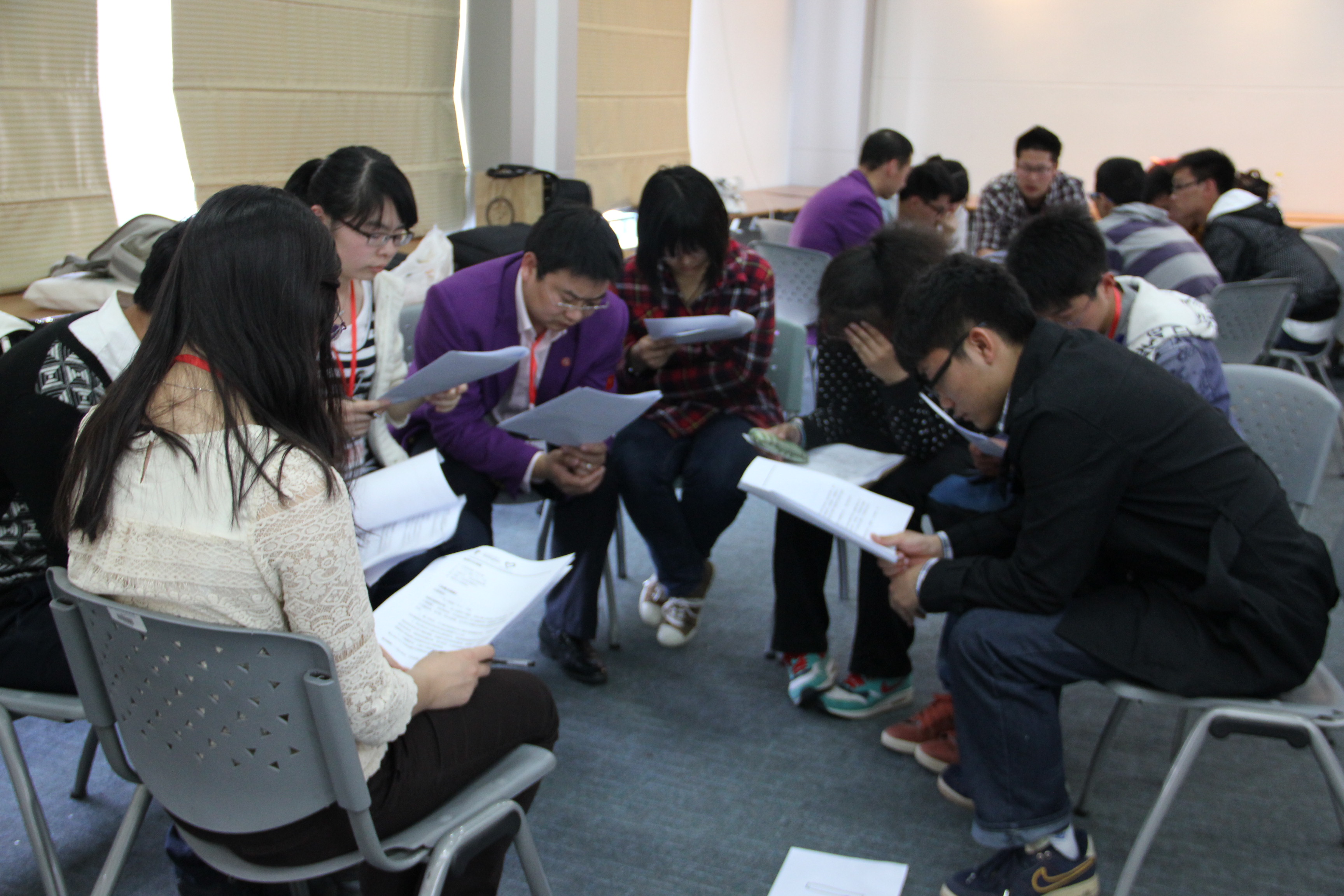
June 5, 2013, by Tony Hong
Social support from university students in China: Reflections on a charitable workshop at UNNC
By Dr. Bin Wu,
Senior Research Fellow, China Policy Institute, The University of Nottingham UK.
The establishment and development of social support networks are crucial for China to remove the barriers against the integration of rural migrant workers and their family members into urban communities. In this process, perhaps, how to mobilise and organise millions of university students to participate and contribute is vital from the perspective of available resources and development potential. In relation to this theme, I visited the University of Nottingham Ningbo Campus (UNNC) one month ago in order to learn about students’ experiences and benefits from their local engagement projects. During my one-week stay in Ningbo, I was lucky to have an opportunity for attending a student organised workshop. Below are my reflections on what I have seen and learnt from my half day participation.
The opening ceremony of this two-day workshop was held at the UNNC Conference Centre. The theme of the workshop was about the improvement of student volunteers’ knowledge, skills and methods in designing and delivering their charitable projects for local migrant children and other vulnerable groups. Of the 100 or so attendants were students, of whom about half came from 8 other universities in Shanghai, Suzhou, Hangzhou and Ningbo. I was surprised that there was no university staff attending the ceremony. According to the workshop organiser, this was the second event with a similar theme organised by a group of UNNC students from the Youth Volunteer Association (YVA) last year., . Furthermore, this event is only one of the many events organised by university students each year because there are so many student societies and projects here which are relevant to social support and external involvement. Nonetheless, the YVA is one of most influential societies on this campus since the founding of the UNNC and currently has around 100 core members working on more than ten different projects.
I was impressed by the increasing popularity of charitable activities across university campuses nation-wide – a new momentum for the development of social support in China. According to those external delegates, most charitable projects are initiated or coordinated by the Youth League Committee within the university, a typical Chinese characteristics phenomenon. For instance, most of student delegates from other universities outside of Ningbo gained financial support from the university authorities for their transport and local hotel costs in Ningbo. This is in contrast to UNNC where all of the student projects are owned and managed by the students themselves consideration.
Despite little involvement with the university authority, interestingly, the student-led workshop brought a number of experts and practitioners from local NGOs to join the event. Furthermore, instead of conventional presentations by individual participants, participants were divided into 5 groups for the analysis of the cases provided by the organiser or designing a group project collectively. As a result, the workshop was a process of learning not only by students themselves across universities, but also between students and NGO practitioners. At the end of my visit at UNNC, I was so impressed by what many students said in the workshop, ie. social support is not a one way process of students contributing their time, knowledge and kindness to those vulnerable people, because the other way is also equally or even more important. University students can gain relevant knowledge, experience and skills from stakeholders in the wider community, leading to a change in their values, attitudes and growth in their confidence. I could not agree more.
No comments yet, fill out a comment to be the first

Leave a Reply